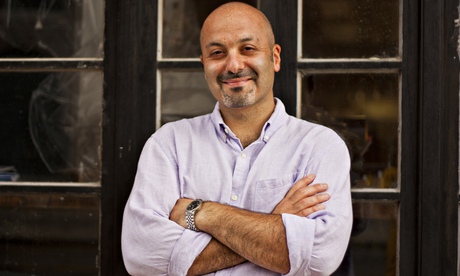
I was always going to like this novel. It is about Russia and Russian-ness and America and American-ness, about the relationship between the generations, history, atonement, fact, fiction, biography, literature and the process of writing … And, as if this were not enough, there is a scene in which the hero, Slava, drinks Boddington’s, the Mancunian beer of my youth. Yes, this is the real thing.
Boris Fishman was born in Minsk and emigrated to the US with his family at the age of nine. They settled in South Brooklyn. In the tradition of first novels, A Replacement Life reflects and refracts this experience. On the death of his grandmother, Slava rides the South Brooklyn-bound subway back to Midwood, “a foreign city, if you were coming from Manhattan” where the émigrés from the many ex-Soviet republics live amid the rowdy “churn” of “new arrivals”.
Slava, a writer manqué working as a junior editor on a literary magazine, has never managed to get the full story of his grandmother’s life. All he knows is that she was orphaned when the Nazis razed the Jewish ghetto in Minsk, and that somehow she escaped. But her death detonates Slava’s life in all kinds of ways. Most obviously, because it forces him back into the close company of his distemperate grandfather, Yevgeny, who tells Slava that his grandmother has recently received a letter from the Conference on Jewish Material Claims Against Germany (CJMCAG). Obviously, it’s too late for his grandmother, but would Slava mind making up a Holocaust narrative for his grandfather so that he can get a claim in and make some money?
Slava reluctantly agrees. Word gets around and soon he is providing the same service for half the elderly Jews in the neighbourhood. Paradoxically, his writing now takes off. As a needy journalist, his prose was a burden for writer and reader alike; but as a teller of the war stories, he finds that he is fluent, compelling and ingenious.
This part of the plot also reflects Fishman’s experience: he filled in the restitution forms for his grandmother, who was a real-life survivor of the Minsk ghetto. Meanwhile – also in real life – there were several millions of dollars of fraudulent Holocaust claims which the CJMCAG eventually brought to the US courts. So it is at this point that Fishman’s other great character, Otto Barber, enters the fray. Barber is the German anti-scam investigator and a somewhat silly descendant of Dostoevsky’s detective, Porfiry Petrovich; “Better to keep a guilty conscience walking around to increase the weight of its guilt,” he says, quoting directly from Crime and Punishment.
Literary allusions (and illusions, and even delusions) are everywhere laced into the novel’s seams: Fishman shares the serious writer’s savouring of word selection and imagery. Slava describes his mother’s wailing at the funeral thus: “Mother had taken from Grandmother the condiments without the meal.” Best of all, though, are Fishman’s Nabokovian asides on the lacunae between Russian and English.
My one criticism is that the first chapter is the weakest. Gary Shteyngart, David Bezmozgis and Lara Vapnyar have somewhat fatigued the American third-generation Russian-speaking diaspora narrative – and I had to force myself through feelings of here-we-go-again and Brooklyn-as-backdrop boredom before the book flowered. The inventions of the stories are this story’s great invention but you have to wait a while for them to charge the book with thematic originality.
Overall, Fishman is at his best – as are so many Russian-descendent writers – in the disputed territory between truth and lies. He describes how there was no way that Soviet pride could allow his grandparents to take the plane direct from Moscow to New York, so they had to go first to Vienna then to Italy and pretend Israel was the final destination – “At every step, everyone had lied about everything so that the one truth at the heart of it all – that abused people might flee the place of abuse – could be told.”

